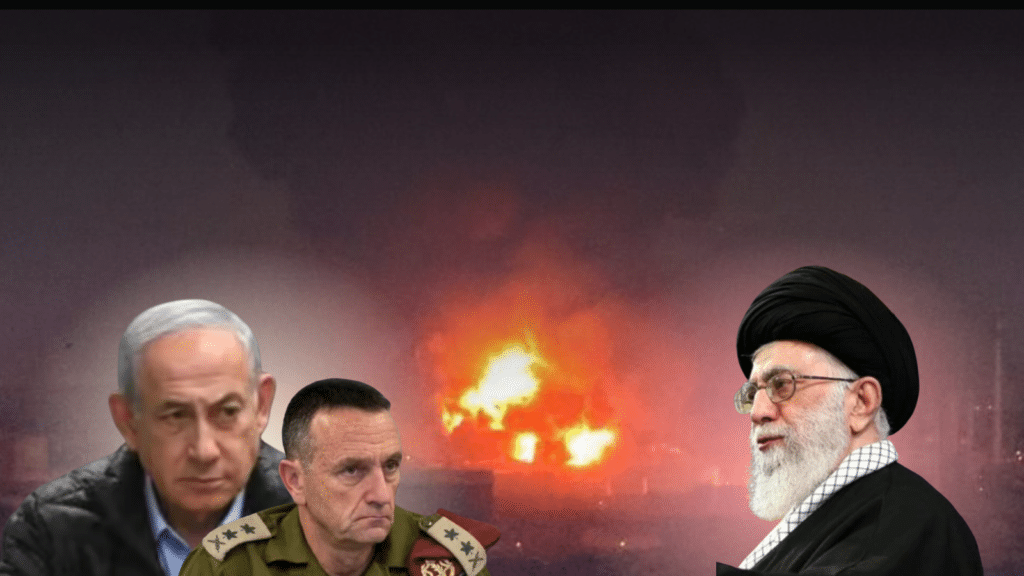
Overview
- In its first-ever strike on Iran, and the first time Israel admitted acting in Iranian territory, the IDF launched Operation “Days of Repentance,” striking key military sites in Iran 25 days after Iran’s missile attack on Israel. Targeting missile production and air defense facilities, the mission appeared aimed at significantly degrading Iran’s ability to attack Israel both through destroying some of their military industrial base and by exposing Iran to future IAF attacks. While the attack did not target oil, nuclear and other national sites, it did demonstrate Israel’s ease of penetrating Iran, and demonstrated how vulnerable energy, nuclear and economic targets are to a potential future IDF attack. Dozens of aircraft participated, with all returning safely. Israel’s forces remain on high alert, signaling to Iran that further aggression would likely trigger strikes on more sensitive targets. The operation underscores Iran’s vulnerabilities, posing a strategic dilemma: respond and suffer more damage or look weak and lose influence domestically and regionally.
- Throughout the week, Israel intensified strikes in Lebanon, targeting Hezbollah infrastructure. Key operations included air and naval attacks on Beirut’s Dahiya district, strikes on weapons facilities concealed within civilian areas, the revelation of a massive Hezbollah cash storage underneath the Al-Sahel hospital, and the elimination of Hezbollah commander Abbas Adnan Maslam. The IDF also destroyed a massive tunnel network in southern Lebanon and is systematically dismantling Hezbollah’s defensive lines to secure the northern border and facilitate the safe return of displaced Israeli civilians.
- Newly disclosed IDF documents reveal Hamas’ control over Al Jazeera’s coverage, including instructions to downplay Islamic Jihad’s failed 2022 rocket attack in Jabalia. Another 2023 document exposes a secure communication channel for discreet coordination during emergencies, highlighting the network’s role in promoting Hamas propaganda and concealing its crimes against Gaza civilians.
- Seven men from Jerusalem collaborated with Iranian agents, gathering intelligence on military sites and infrastructure while posing as tour guides. Led by Rami Alian and Aziz Nisnov, they received $300,000 for missions, including planning an assassination and tracking sensitive locations. Their arrest on September 19 prevented a major attack targeting President Herzog, exposing ongoing yet ineffective Iranian efforts against Israel.
- At the BRICS summit in Kazan, Russian President Putin and Chinese President Xi called for an immediate ceasefire and a two-state solution. Iranian President Pezeshkian condemned the U.N.’s inaction. The meeting also saw a rare meeting between the Iranian and Egyptian presidents. In a joint statement, BRICS leaders emphasized the need for a sovereign Palestinian state based on 1967 borders.
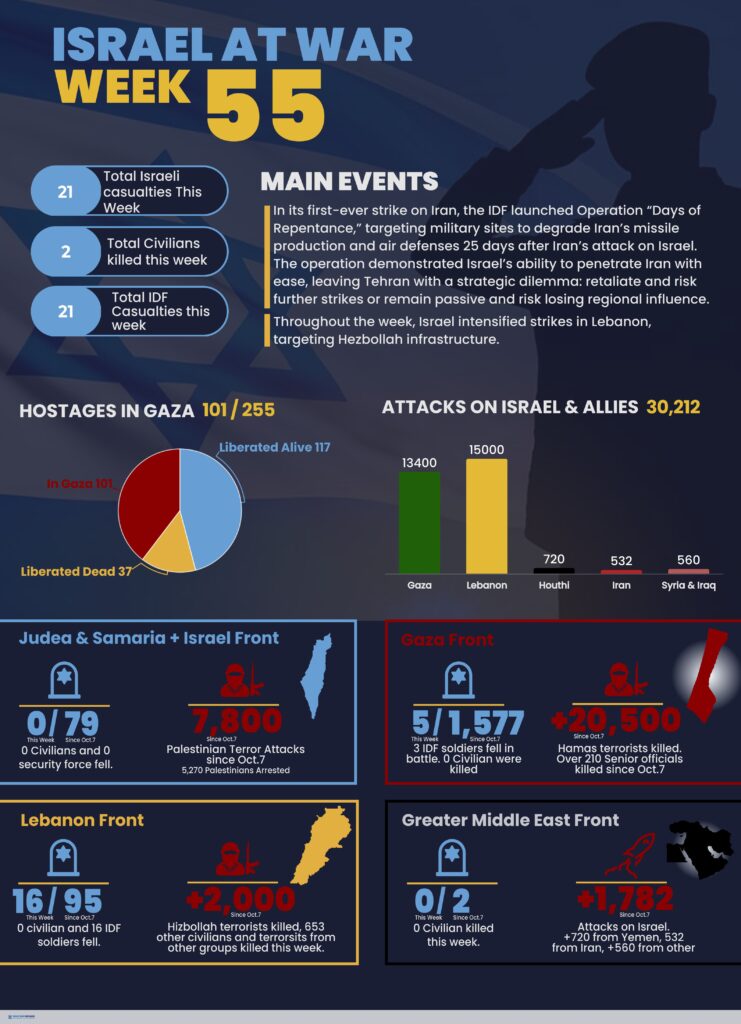
Iran
Israel’s Airstrike in Iran: A Strategic Operation
In a bold move, the Israel Defense Forces (IDF) launched Operation “Days of Repentance,” targeting key military facilities deep in Iran. The strike came 25 days after Iran fired 201 ballistic missiles at Israel.The operation saw all Israeli aircraft return safely. Reports from The New York Times noted approximately 20 sites were hit. This was the first time in history where the Israeli Air Force acted in Iran, and where Israel admitted having acted in the country.
IDF spokesperson Daniel Hagari declared the attack successful and announced expanded airspace freedom over Iran but stated civilian guidelines remain unchanged. Israel’s forces remain at peak readiness, both offensively and defensively.
Primary targets included missile production sites, air defense systems, and surface-to-surface missile factories. Israel refrained from hitting oil or nuclear facilities largely attributed to the request of the Americans to avoid escalation. The mission involved dozens of fighter jets, intelligence assets, and refueling aircraft operating across multiple locations up to 1,600 kilometers from Israel.
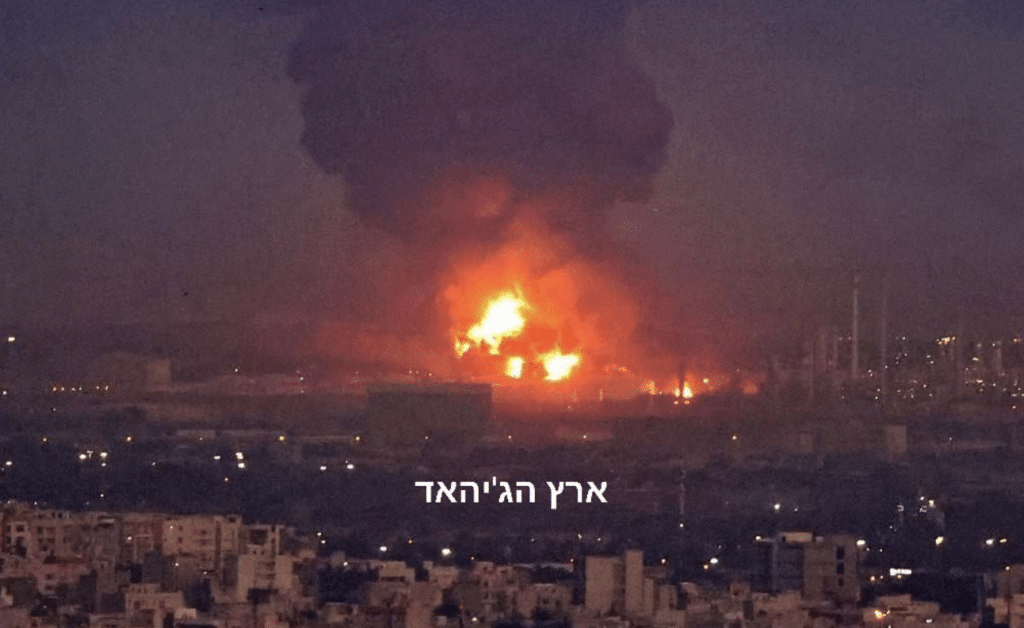
Precision Strike with Strategic Objectives
Israel aimed to disrupt Iran’s missile capabilities. An Israeli source praised the intelligence as “astonishingly precise,” saying strikes hit factories critical to missile production. Reports also indicated explosions near the Karaj power station and Imam Khomeini International Airport. Despite the leaked report by the U.S., Israel coordinated the strike with Washington, though the U.S. did not participate. A senior White House official warned of “consequences” if Iran retaliates but expressed hope this operation would mark the end of direct hostilities.
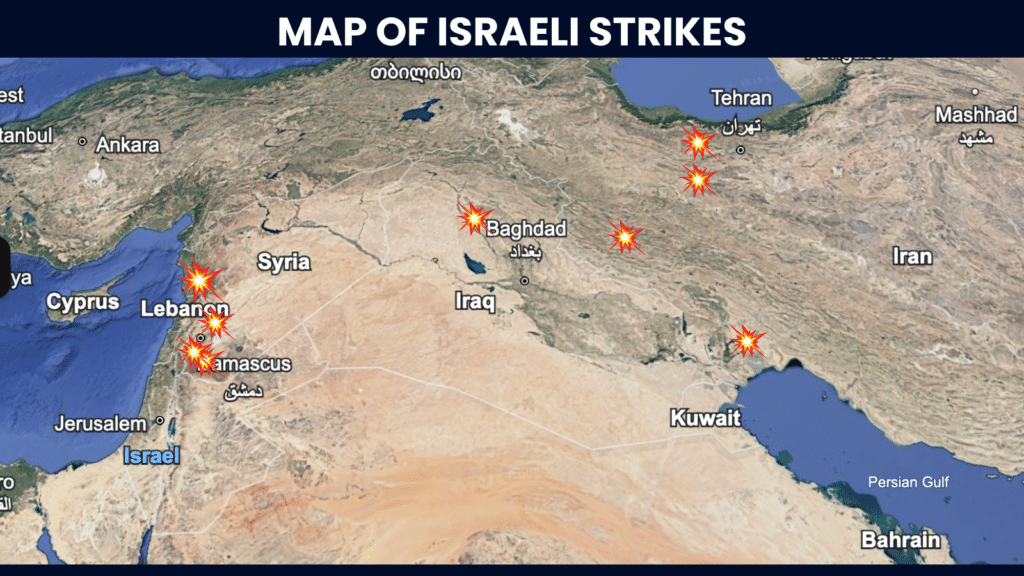
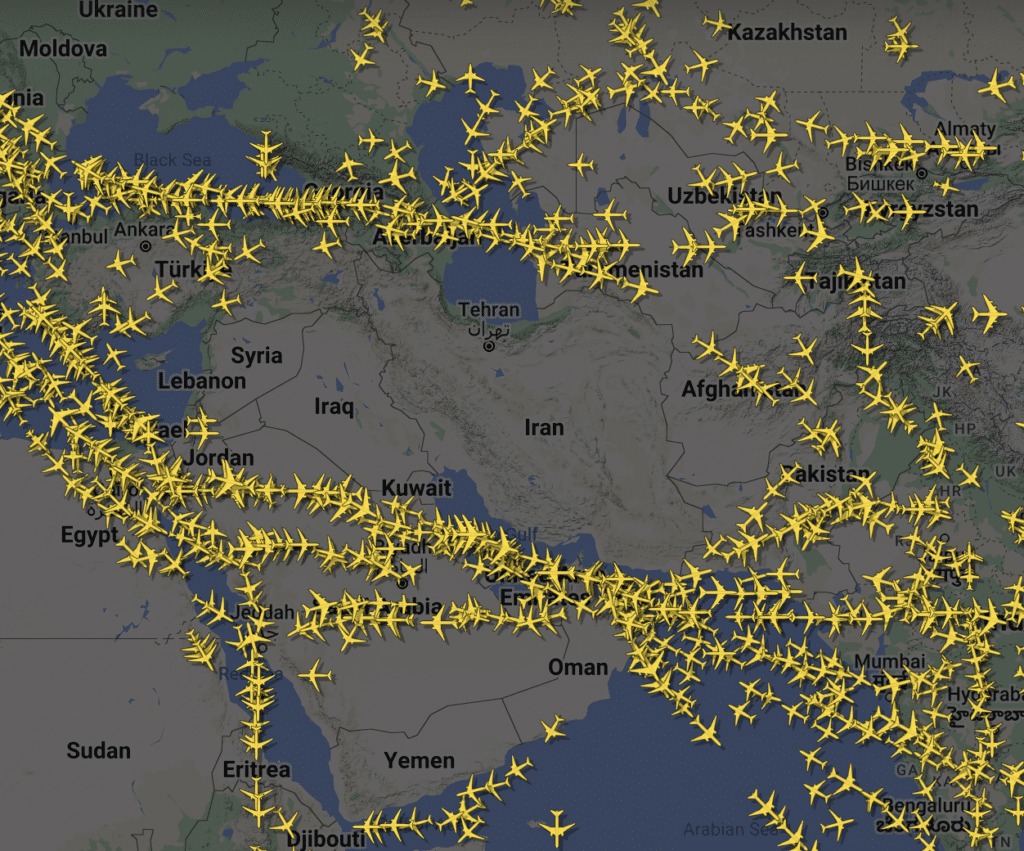
Mixed Iranian Reactions
Iran acknowledged the damage but minimized its significance, calling it “limited.” Iranian Leader Ali Khamenei warned against an Iranian retaliation, saying “one should not overestimate nor underestimate” Israel’s actions, adding Iran should make Israel “understand our capabilites”. Iranian media said the retaliation will come in the appropriate time and place for the Islamic Repbulic.
Meanhile, the Tasnim News Agency, linked to the Revolutionary Guards, dismissed reports of 20 targets being hit as “psychological warfare.” Opposition sources, however, reported smoke rising from sites in southern Tehran and near military bases. One targeted facility was identified as a drone production plant near Arak, vital for Iran’s drone program. Iranian authorities threatened imprisonment for anyone caught sharing footage of the attack.
Iran’s UN representative said in a statement that Iraq, being an “occupied American territory”, allowed Israeli airplanes to hit Iran from its territory, making the US “complicit” in the Israeli attack.
International Responses
In a statement, the Saudi Foreign Ministry condemned the attacks early Saturday, calling them a “serious violation of Iran’s territorial integrity” and a breach of international norms and laws. The United Arab Emirates also denounced the military action against Iran, urging “utmost self-restraint,” while Egypt warned of a “serious confrontation that threatens regional and international security” and called for a “swift ceasefire” across all fronts. Nevertheless, there are voices that are quietly cheering Israel’s attack on Iran from the sidelines
Western leaders avoided harsh condemnation of the Israeli action, while quickly calling to avoid regional escalation, despite Iran’s ongoing initiated escalation in the region. U.S. President Joe Biden expressed hope that Israel’s latest strikes on Iran would mark the end of a months-long cycle of escalation, emphasizing his administration’s focus on securing a ceasefire for Gaza and Lebanon. “I hope this is the end,” Biden told reporters. Meanwhile, the European Union released a statement calling for “utmost restraint” and de-escalation by “all parties”, while “acknowledging Israel’s right to self-defense”.
Strategic Fallout and Regional Impact
The strike’s ripple effects extend beyond Iran. By targeting drone facilities and supply routes for Hezbollah, Israel aims to dismantle Iran’s proxy networks gradually. Recent Israeli attacks on routes near Homs and the Syria-Lebanon border align with this strategy to sever Iran’s regional influence. The operation signals Israel’s willingness to escalate further if warranted. Iran now faces the decision of whether to retaliate, risking a more lethal Israeli strike, or to restrain themselves and risk their credibility as the head of the axis of resistance that has been deterred from responding to Israel’s first acknowledged direct attack on Iran.
Iran’s Dilemma and Calculated Response
Iran is activating its proxies to prepare a response, which includes criminal networks in Europe. Israeli embassies in Sweden and Denmark are on alert after previous attacks. Meanwhile, the recent elimination of key figures like Hezbollah’s Hassan Nasrallah and Hamas’s Yahya Sinwar has forced Iran to reevaluate its reliance on weakened proxies.
A New Strategic Equation
The operation has created a new regional calculus, especially in Lebanon. Iran’s continued support for Hezbollah risks future Israeli strikes on more sensitive targets within its borders. Israel’s message to the Iranian people is clear: the regime is vulnerable, and minority groups like the Baluchis, Kurds, and Ahwazis might exploit this opportunity. Israel’s successful strike curtails Iran’s military ambitions while reaffirming its ability to act decisively.
Israel’s operation in Iran appears to set the stage for future strikes on key energy, nuclear, and economic infrastructure. With Hamas weakened and Hezbollah’s capabilities largely paralyzed, Israel is now in a stronger position to launch a broader offensive. This momentum, combined with favorable conditions in the post-election U.S. political climate, creates a unique strategic opportunity. However, failure to act decisively in the near future against Iran’s military capabilities and nuclear sites would be missing a historic opportunity.
Tehran now faces a strategic crossroads: escalate and invite further strikes, or hold back and prevent deeper damage to its regional influence.
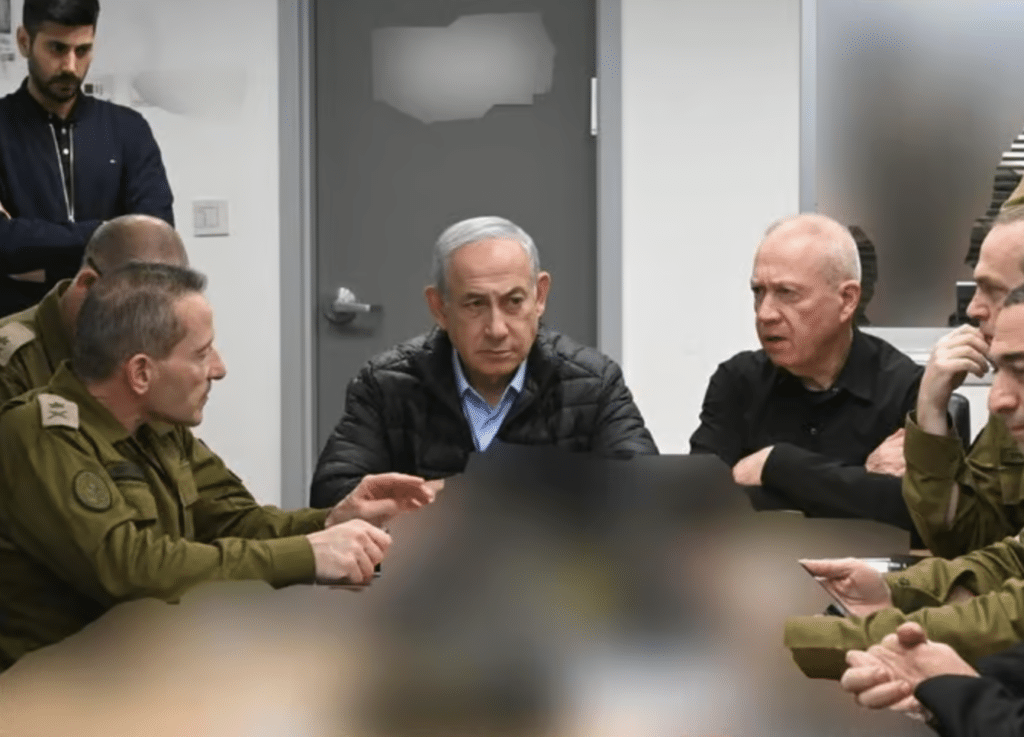
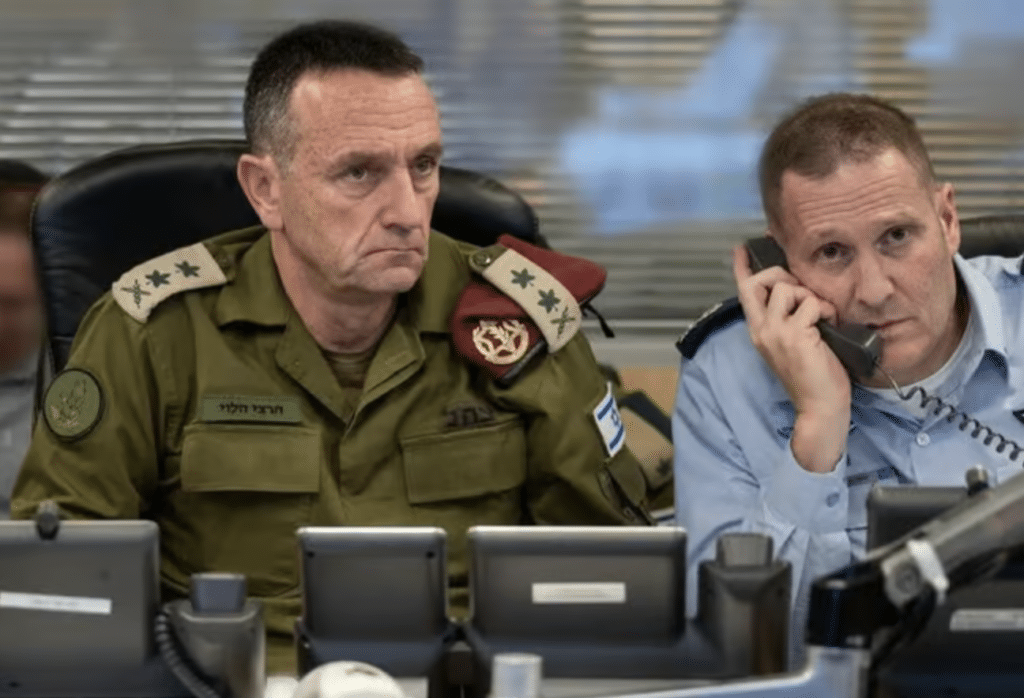
Lebanon
Israeli Strikes and Military Operations in Lebanon
Through the week the Israeli Air Force and ground forces continued to target military sites throughout Lebanon. Some notable examples are:
- Multiple sites in Beirut’s Dahiya district, including the office of Al-Mayadeen, a media outlet linked to Hezbollah. Lebanese sources reported over 12 airstrikes within 30 minutes, with Israeli naval vessels participating in the operations.
- Precision strikes on Hezbollah weapon manufacturing and storage facilities hidden within civilian infrastructure in Dahiya. The IDF highlighted this as an example of Hezbollah’s use of civilians as human shields.
- The IDF confirmed the elimination of Abbas Adnan Maslam, a Hezbollah commander responsible for attacks on northern Israel.
- A massive tunnel system in southern Lebanon was destroyed using 400 tons of explosives, triggering seismic alerts in northern Israel. The IDF is systematically dismantling Hezbollah’s infrastructure to secure the border and ensure displaced Israelis can return safely.
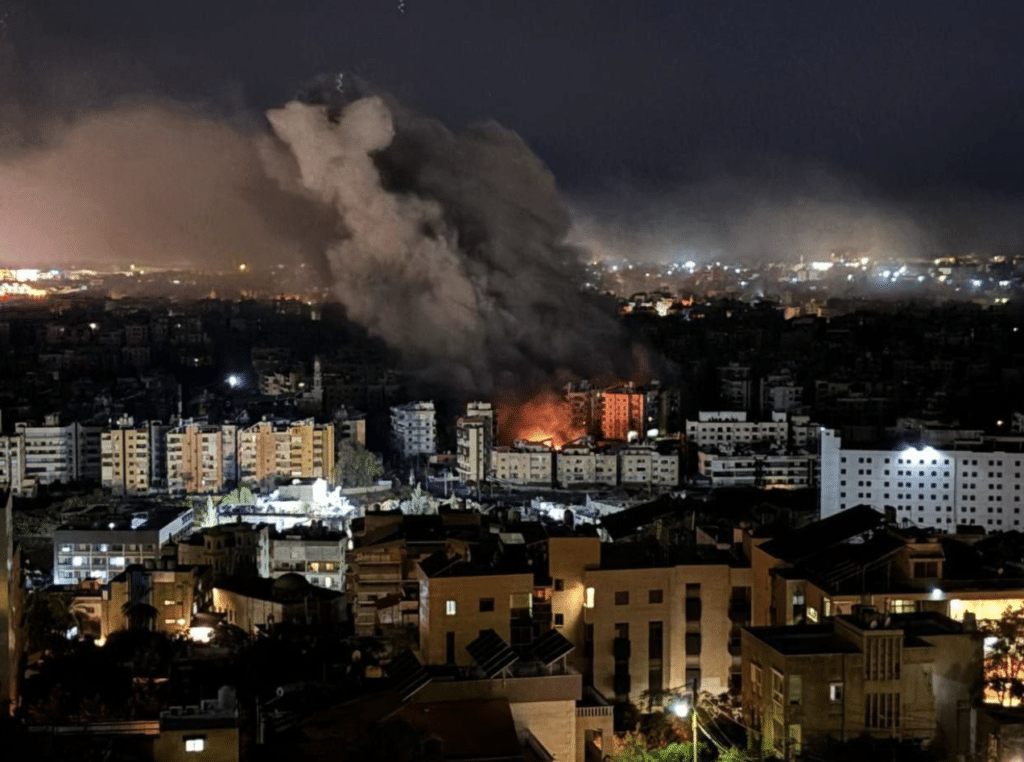
The IDF is systematically dismantling Hezbollah’s terror infrastructure entrenched for over 17 years in southern Lebanese villages along the first defensive line. This infrastructure was intended to support Hezbollah’s elite Radwan forces in launching an incursion into Israel, with up to 10,000 fighters aiming to capture the Galilee and take Israeli hostages.
The IDF’s operations in southern Lebanon are essential to enable the safe return of displaced Israeli civilians from northern regions. Without fully neutralizing both the first and second lines of Hezbollah’s infrastructure—stretching 5 to 10 kilometers from the Israeli border—residents cannot safely return. Ensuring long-term security requires eliminating these strategic positions to prevent Hezbollah from executing future attacks. During this past week’s operations clearing the villages, 12 IDF soldiers fell in battle in Lebanon.
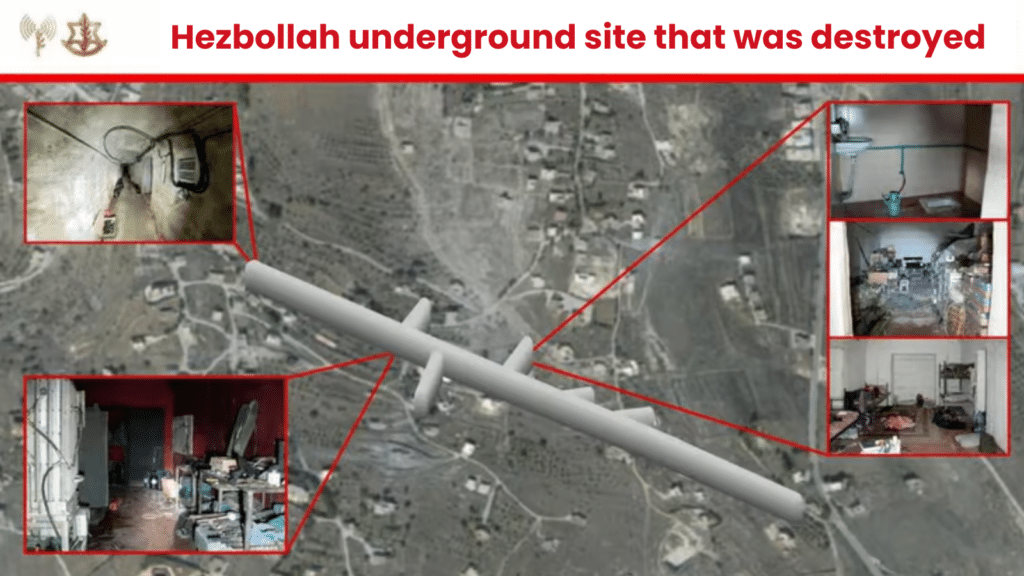
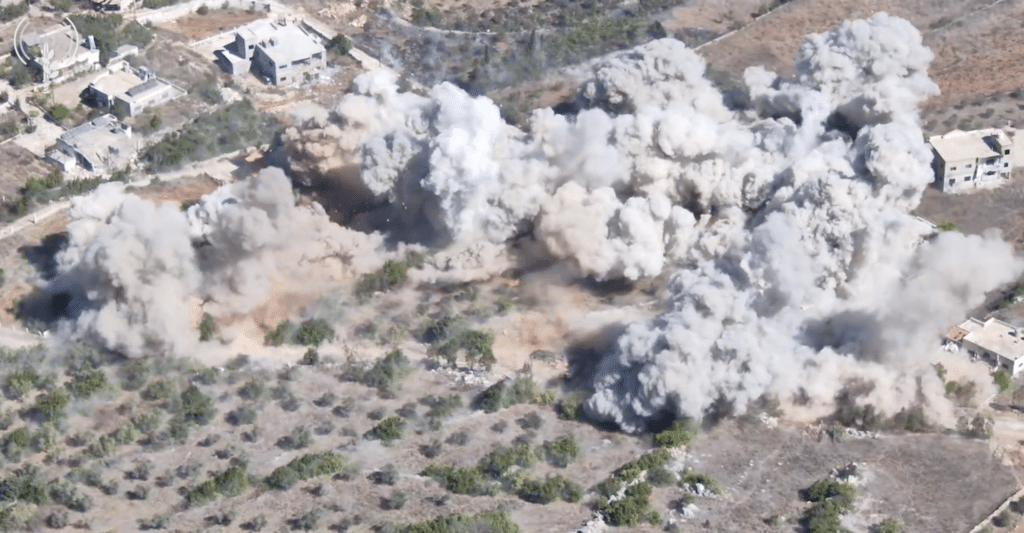
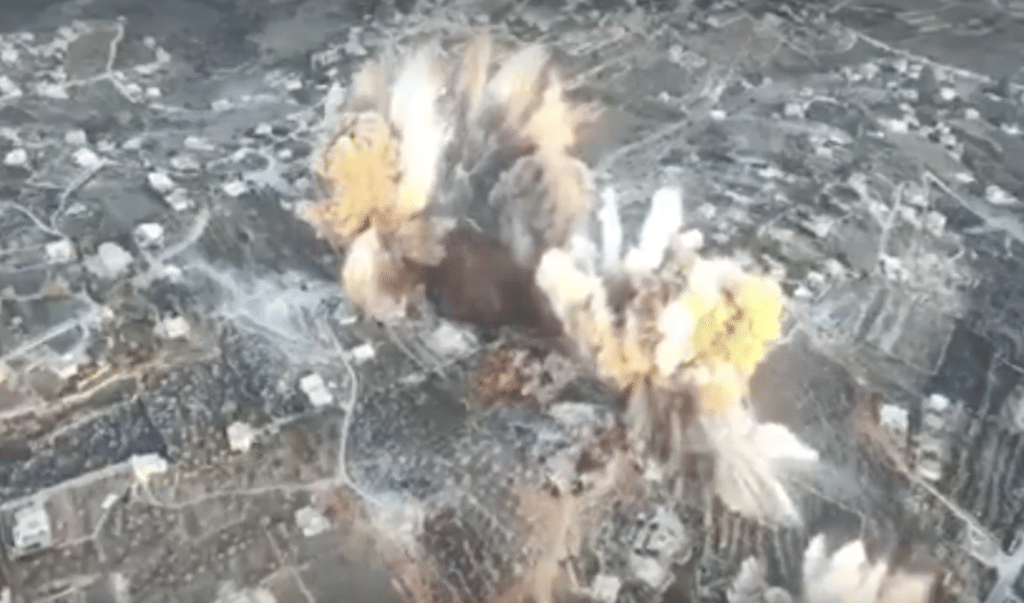

Political Reactions and Diplomatic Developments
On October 24th, Nadim Gemayel, a Lebanese MP from the Christian Kataeb Party, demanded: “Before electing a president or declaring a ceasefire, we must disarm Hezbollah. We do not want their weapons in Lebanon.”
Meanwhile, during his visit to Lebanon, U.S. special envoy Amos Hochstein,did not request changes to UN Resolution 1701. Hochstein and parliamentary speaker Nabih Berri reportedly agreed on a ceasefire framework, with Hochstein promising to consult with Israel. In a meeting with U.S. Secretary of State Antony Blinken in London on October 25th, Lebanese Prime Minister Najib Mikati reiterated Lebanon’s commitment to Resolution 1701. Mikati stressed that Israel must cease its strikes, citing the displacement of 1.4 million Lebanese and accusing Israel of targeting civilians, journalists, and medical teams, in violation of international law.
Hezbollah Leadership continues to crumble
On October 23rd, the IDF reported the elimination of Khalil Mohammad Amahaz, a key figure in Hezbollah’s drone operations. Hezbollah also confirmed the death of Hashem Safi al-Din, designated as Hassan Nasrallah’s successor, killed three weeks earlier along with intelligence chief Hussein Ali al-Zima during an IDF strike.
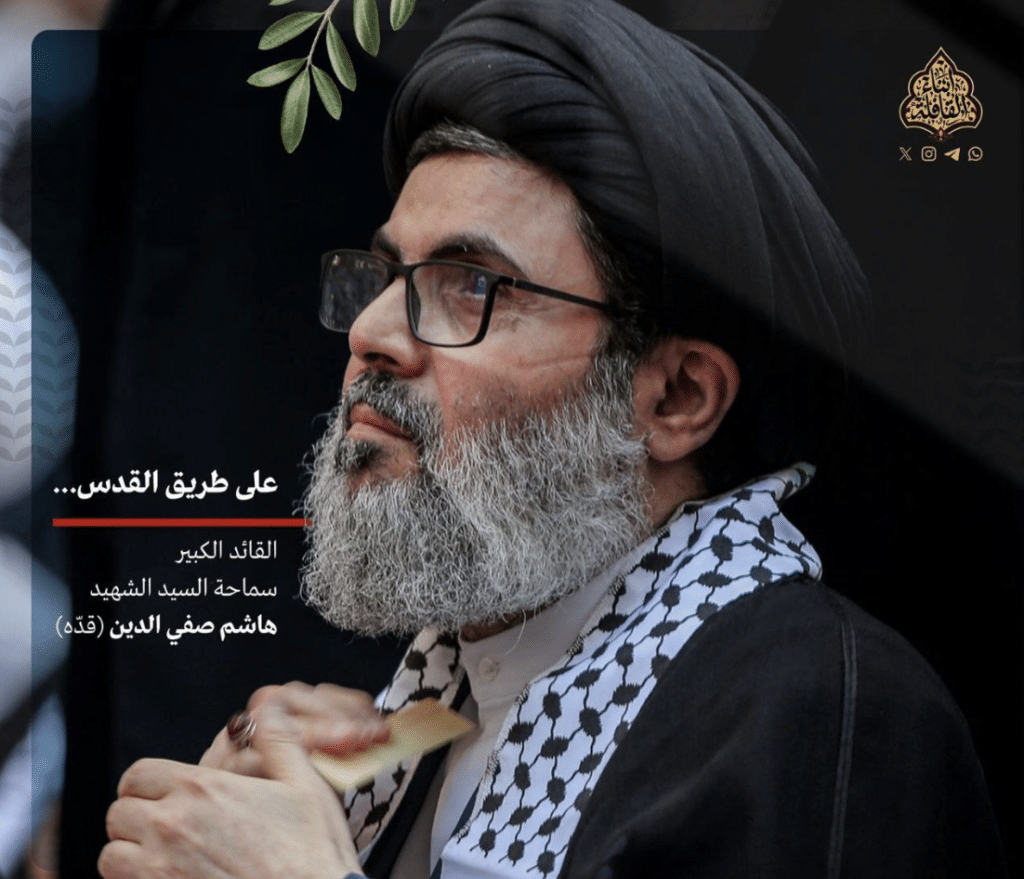
On October 24th, Hezbollah-affiliated media confirmed al-Zima’s death and revealed his image. Additionally, Israeli forces uncovered Russian-supplied weapons in a Hezbollah underground facility, initially intended for Syria but repurposed for operations against Israel.
So long as Israel can eliminate strategic leadership personalities in Hezbollah while also eliminating military commanders in the battlefield, the prospect of destabilizing the group sufficient for internal pressures within Lebanon to assist in overcoming Hezbollah’s influence on Lebanese society and decision making grows. Therefore the military pressure from Israel must continue.
Gaza
Israeli Military Achievements in the Battlefield
The IDF announced the successful elimination of Mazen Al-Kahlout, the Hamas police chief in Gaza’s Jabalia area. This marked a critical strike against Hamas’ command structure. Additionally, the IDF revealed intelligence findings from Gaza that confirm the military involvement of six Al Jazeera journalists: Anas Al-Sharif, Alaa Salama, Hussam Shabat, Ashraf Al-Sarraj, Ismail Abu Amr, and Talal Al-Arouqi. Documentation includes personnel lists, training schedules, and salary records, proving their dual roles as both media operatives and active terrorists. Notably, Abu Amr had previously been injured in an IDF operation, further validating his involvement in terrorist activities.
During the week, 5 IDF fell in battle.
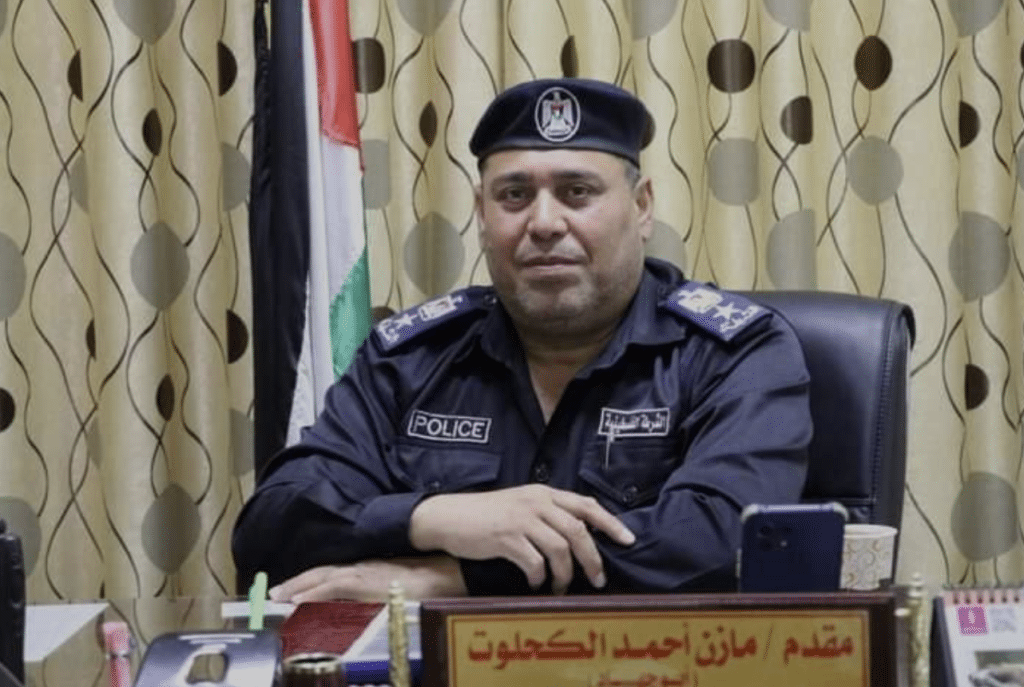
Al Jazeera’s Connection to Hamas
New IDF-disclosed documents highlighted Hamas’ strategic control over Al Jazeera’s coverage. Evidence from a 2022 document revealed how Hamas instructed the network to downplay a failed rocket attack by Islamic Jihad in Jabalia, which caused civilian casualties. The directive forbade the use of terms like “massacre” and limited the publication of photos from the scene. Another 2023 document unveiled a secure communication line established between Hamas and Al Jazeera, ensuring discreet coordination during emergencies. These revelations underscore the network’s role in advancing Hamas propaganda, while also concealing Hamas’ criminal activities against Gaza residents.
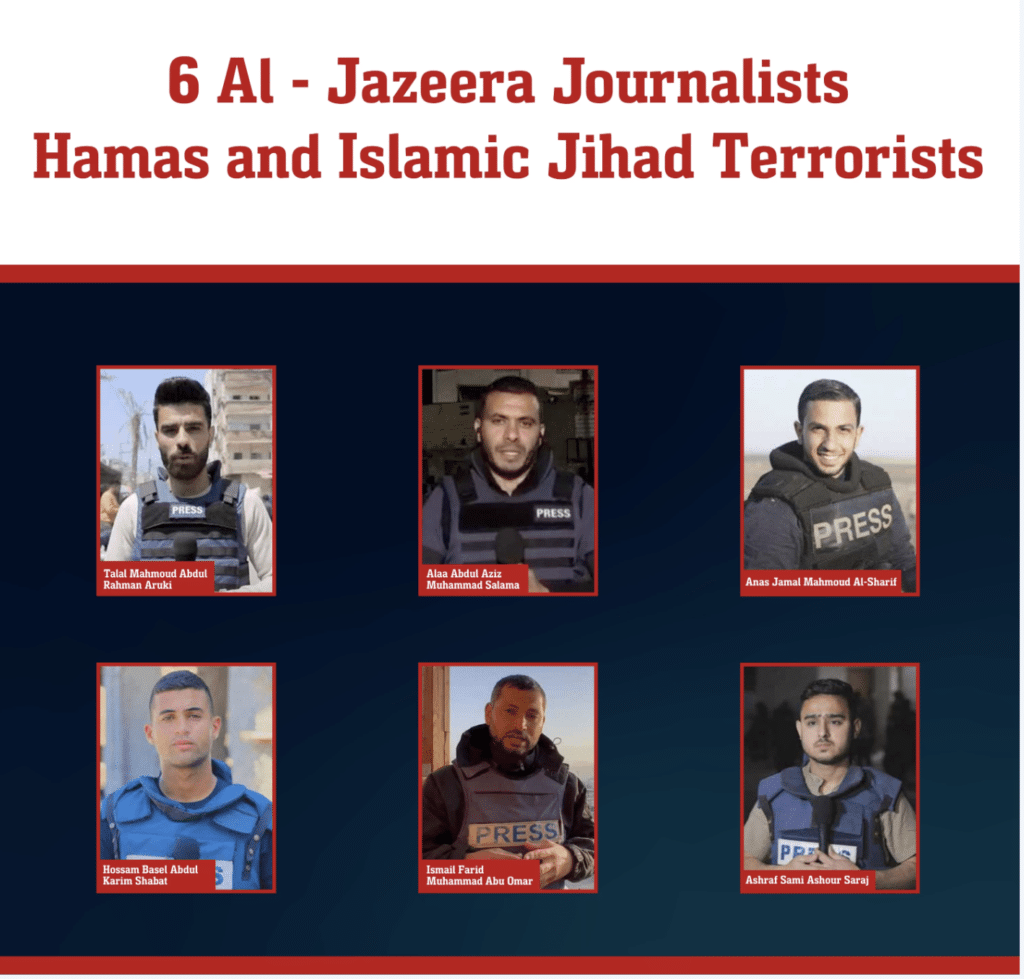
The Hostage Deal – Going Nowhere
Ongoing negotiations are unfolding but not advancing towards the release of hostages. On October 24, Hamas official Osama Hamdan indicated in an interview with Lebanon’s Al-Mayadeen TV that hostages will only be released if Israel halts military operations and withdraws from Gaza. Meanwhile, Hamas’ leadership, including senior member Khalil al-Hayya, has traveled to Cairo for talks with Egypt’s intelligence chief Hassan Mahmoud Rashad. Russia is also actively mediating for the release of two Russian hostages, with Hamas official Mousa Abu Marzouk meeting with Russian Deputy Foreign Minister Mikhail Bogdanov in Moscow.
The U.S. has proposed a “small-scale” hostage release and ceasefire as a precursor to a broader deal. This follows reports of a Mossad-led negotiation team traveling to Qatar. American officials view the death of Hamas leader Yahya Sinwar as a significant opportunity, describing him as a dangerous obstacle to any meaningful agreement.
As long as Israel continues to rely on direct talks with Hamas via Qatar, the likelihood of a deal materializing is non-existent. The Israeli government needs to be more creative in finding ways to free hostages held by terrorists throughout the Gaza Strip.
Israel – Domestic / Political
Espionage Plot: Collaboration with Iran to Target Israel
Seven young men from the Tzafafa neighborhood in Jerusalem, aged 19 to 23, face charges of aiding an enemy during wartime and providing intelligence for an assassination attempt on an Israeli nuclear scientist. Rami Alian, identified as the ringleader, was recruited by an Iranian agent via Telegram and completed several missions, including photographing the Weizmann Institute of Science in Rehovot.
A second group of seven individuals, including two minors, were charged with espionage for photographing military bases, including Nevatim, Ramat David, and Tel Nof, as well as civilian sites such as Iron Dome batteries and the Haifa government complex. Acting under Iranian guidance, they gathered intelligence on infrastructure, military defenses, and shipping routes.
The group’s leader, Aziz Nisnov, was tasked with tracking a Haifa-based gas engineering expert and gathering personal information. In another mission, they were instructed to document ports and stadiums in Be’er Sheva. The operatives received payments between $500 and $1,200 per task, amassing $300,000. To avoid detection, they posed as tour guides. Their arrest on September 19 prevented a final operation at an event attended by President Isaac Herzog.
Such actions of espionage must be taken extremely seriously, and harsh punishments must be implemented to deter future recruits. It is worth noting that even with Iranian intelligence, their ballistic missile attacks still mostly missed their targets indicating that their capabilities are still not in the same league as Israeli capabilities.
Accusations against UNRWA
IDF spokesperson Rear Admiral Daniel Hagari disclosed that Israel sought clarification from the UN on the involvement of UNRWA staff in the October 7 massacre. Muhammad Abu Itawe, a commander in Hamas’ elite Nukhba unit, had been involved in the attack and abduction of Israeli civilians while also employed by UNRWA since July 2022. Itawe was later killed by Israeli forces. UNRWA’s future in Gaza is still to be determined, given its track records of employing actual terrorists.
Judea & Samaria
Pro-Hamas Mobilization
On October 23, pro-Hamas channels called on Muslims worldwide to besiege Israeli and U.S. embassies in retaliation for the situation in Gaza and the elimination of Yahya Sinwar on a “Friday of Rage.” Posts included images of Sinwar holding a stick, referencing the one he threw at an Israeli drone before his death, accompanied by slogans like:
“Throw your stick and besiege the Zionist embassies.”
#RiseAndResist | #EmbassySiege | #FridayOfRageForGaza
These channels branded the event as “Embassy Siege” to enhance visibility and incite action globally. Countries around the world should be on alert for terrorist activities by Hams aimed at destabilizing the local civil society.
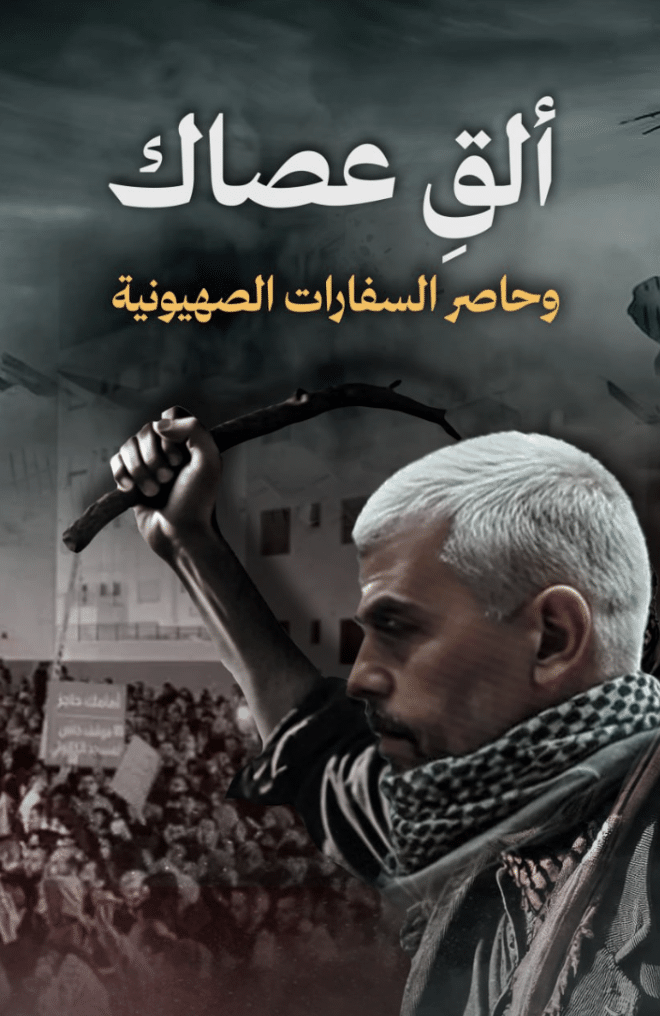
Counter-Terror Operations in Tulkarm
On October 23, after seven hours of operations, Israeli security forces—including Yamam, the Haruv Reconnaissance Unit, and Shin Bet—neutralized Islam Odeh, a key Hamas operative in Tulkarm. Odeh, who had taken command following the elimination of Zahy Awwfi on October 3, was planning imminent attacks. Security forces acted on Shin Bet intelligence and initiated a “pressure cooker” procedure when Odeh fired at them. He was killed during the exchange of fire. His vehicle contained weapons and explosive materials, confirming his involvement in arming operatives. Odeh had been intensifying attack plans ahead of the first anniversary of the October 7 events.
Palestinian Authority Updates
On October 24, Palestinian Authority President Mahmoud Abbas met Russian President Vladimir Putin during the BRICS summit in Moscow. Abbas reiterated his opposition to any separation of Gaza from Judea and Samaria and reaffirmed efforts to secure full UN membership. He also discussed the severe financial difficulties facing the Palestinian Authority due to Israel’s withholding of clearance revenues, which has further strained the Palestinian economy. The Israeli government has been working on ways to avoid sending funds to the Palestinians Authority which continues to pay Palestinians to Slay Jews. So long as the Palestinian Authority uses its funds to educate, incite and incentivize their population to attack and murder Jews, while funding their lethal attacks, the Israeli government will reject releasing the funds to the Palestinian Authority.
International
Germany
During a visit to Beirut, German Foreign Minister Annalena Baerbock addressed arms shipments to Israel, stressing, “Israel must uphold international law.” She noted that the conflict with Hezbollah “cannot be solved militarily” and called for Hezbollah to withdraw beyond the Litani River and the IDF to retreat behind the Blue Line. Baerbock urged diplomacy, encouraging cooperation with Europe, the Arab world, and the U.S. to broker a resolution benefiting both Israel and Lebanon.
France
French Foreign Minister Jean-Noël Barrot reiterated that the joint French-American plan remains key to any ceasefire and stressed that Lebanon’s two-year political deadlock is “unacceptable.” At a Paris conference, French President Emmanuel Macron pledged €100 million in aid to Lebanon, with Baerbock announcing Germany’s contribution of €96 million. Both leaders emphasized the need for a ceasefire, with Baerbock expressing a commitment to helping those seeking peace and security.
EU
EU Chief Josep Borrell also pledged €80 million in humanitarian aid and military support for Lebanon. The conference secured $800 million for humanitarian relief and $200 million for the military, with 70 government delegations and 15 international organizations participating.
Saudi Arabia
A Shiite organization calling itself “The Islamic Resistance from the Land of the Two Holy Mosques” from Saudi Arabia announced its first attack: the alleged launch of a drone targeting a critical site in Israel. If true, this marks the first time an aerial device of any kind has been launched from Saudi territory toward a target in Israel.
Qatar
Qatar’s Prime Minister and Foreign Minister, Mohammed bin Abdulrahman Al Thani, responded to Israel’s accusations against the Al Jazeera news network, stating, “We are very proud of Al Jazeera and its war coverage.” He emphasized that “Al Jazeera operates according to the highest international standards of journalism. There is no justification for targeting journalists in conflict zones, and such excuses are unacceptable.” Al Thani also revealed, “Over the past two days, we held meetings with Hamas’s political bureau in Doha.” Meanwhile, U.S. Secretary of State Antony Blinken stated that he could not comment on Israel’s allegations that some Al Jazeera staff are Hamas operatives. It is possible to believe that Qatar’s position in the hostage negotiation gives them and Al Jazeera immunity to actively support Hamas.
Yemen
According to a report by the Wall Street Journal, Russia provided satellite data to the Houthis in Yemen, aiding their attacks on Western vessels in the Red Sea. The report suggests that Moscow’s support enabled the Iran-backed militia to disrupt global trade and destabilize the region. It also states that the Houthis used this satellite data to intensify their attacks, with the information being relayed through Iranian Revolutionary Guard personnel stationed in Yemen.
Russia has every interest in focusing international attention to the Middle East and diverting from its war in Ukraine. Russia’s involvement in Middle Eastern affairs and the war on Israel is visible and destructive and is a contributing factor for continued violence and the violation of International Order in the MIddle East.
Syria + Iraq
Syrian sources report that the Israeli strike in Homs targeted the “Al-Qusayr Bridge” on the road which connects Syria with Lebanon, a route frequently used by Hezbollah arms smugglers. The IDF is continuing to work across the entire Middle East to halt weapons transports from Russia and Iran to proxy forces in Syria, Lebanon and elsewhere. Israel’s efforts to dismantle the axis of resistance weapons on the ground and in transport must also include targeting the facilities where these weapons are developed.
BRICS
At the BRICS summit in Kazan, Russian President Vladimir Putin claims that tensions between Israel and Iran have pushed the Middle East toward full-scale war. “This surge in confrontation is like a chain reaction, driving the region toward catastrophe,” Putin said.
Chinese President Xi Jinping called for an immediate ceasefire in Gaza and an end to the spread of conflict into Lebanon. He emphasized his wish for a two-state solution, urging the creation of independent states for Israel and Palestine.
Iranian President Masoud Pezeshkian criticized the United Nations for its failure to address the crisis. “The flames of war rage in Gaza and Lebanon, while the U.N. Security Council fails to fulfill its role,” he said, calling for more effective international intervention.
In a joint statement, BRICS leaders reaffirmed their support for a sovereign Palestinian state based on the 1967 borders, warning that without such a resolution, the region will remain trapped in cycles of violence and instability. Palestinian President Mahmoud Abbas attended the summit, adding urgency to the call for a renewed peace process.
United States
The US administration continued to press their interest and vision for the continuation of the war: Reach a hostage deal – Allow more aid to enter Gaza and de-escalate in Lebanon.
During a visit to Israel, U.S. Secretary of State Antony Blinken urged Israel to turn military success into strategic achievement by securing the release of hostages and ending the war as soon as possible. He also outlined U.S. plans for post-war Gaza, opposing Israeli reoccupation. Vice President Kamala Harris called Hamas leader Yahya Sinwar’s death a chance to end the war, release hostages, deliver humanitarian aid, and revive two-state negotiations. Defense Secretary Lloyd Austin raised concerns with Israeli Defense Minister Yoav Gallant over Israeli strikes on Lebanese forces. He urged Israel to address Gaza’s humanitarian crisis and saw Sinwar’s death as an opening for ceasefire talks and hostage releases.Pentagon Deputy Spokesperson Sabrina Singh warned that a U.S. arms embargo on Israel may follow if humanitarian aid to Gaza does not increase by early November. Singh emphasized the need for more aid despite progress through the Erez crossing.
Blinken announced a $135 million U.S. aid package for Gaza, targeting water infrastructure and healthcare, with total aid since October 2023 surpassing $1 billion. Military aid to Israel during the war has exceeded $17.9 billion, according to Brown University.
Nearly 100 American organizations, including Amnesty International and Human Rights Watch, called on the Senate to halt arms sales to Israel, citing civilian deaths from U.S.-supplied weapons.
In London, Blinken highlighted the urgency of a diplomatic resolution in Lebanon following Israeli operations, calling for the full implementation of UN Resolution 1701 to secure the border and allow displaced civilians to return home.
On another note, House Speaker Mike Johnson urged Senate Majority Leader Chuck Schumer to advance sanctions on the International Criminal Court (ICC) over actions against Israeli leaders, expressing frustration with Senate delays.
21 Soldiers fell in battle this week. Here are some of the names and photos
Gaza
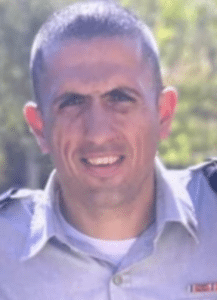




Lebanon

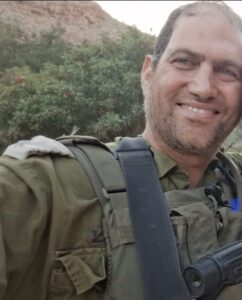






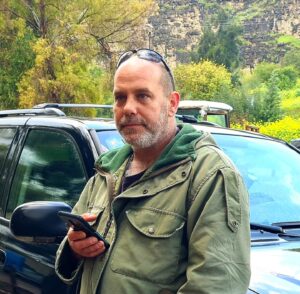


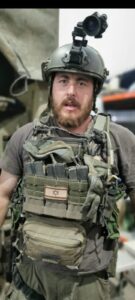





Of Blessed Memory
Source | IDF Website
